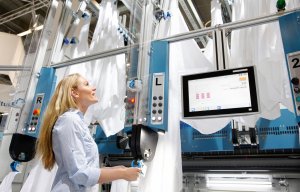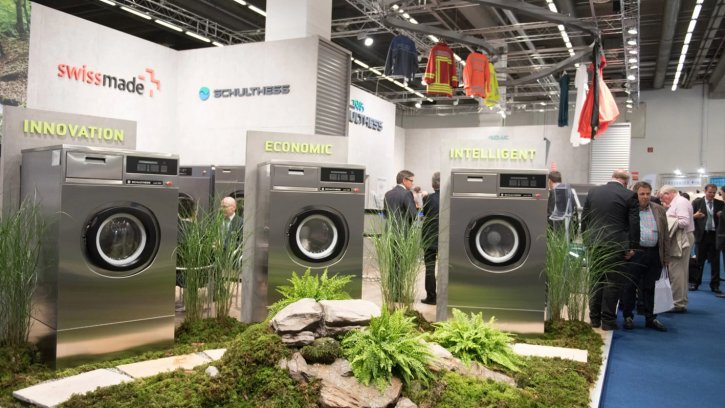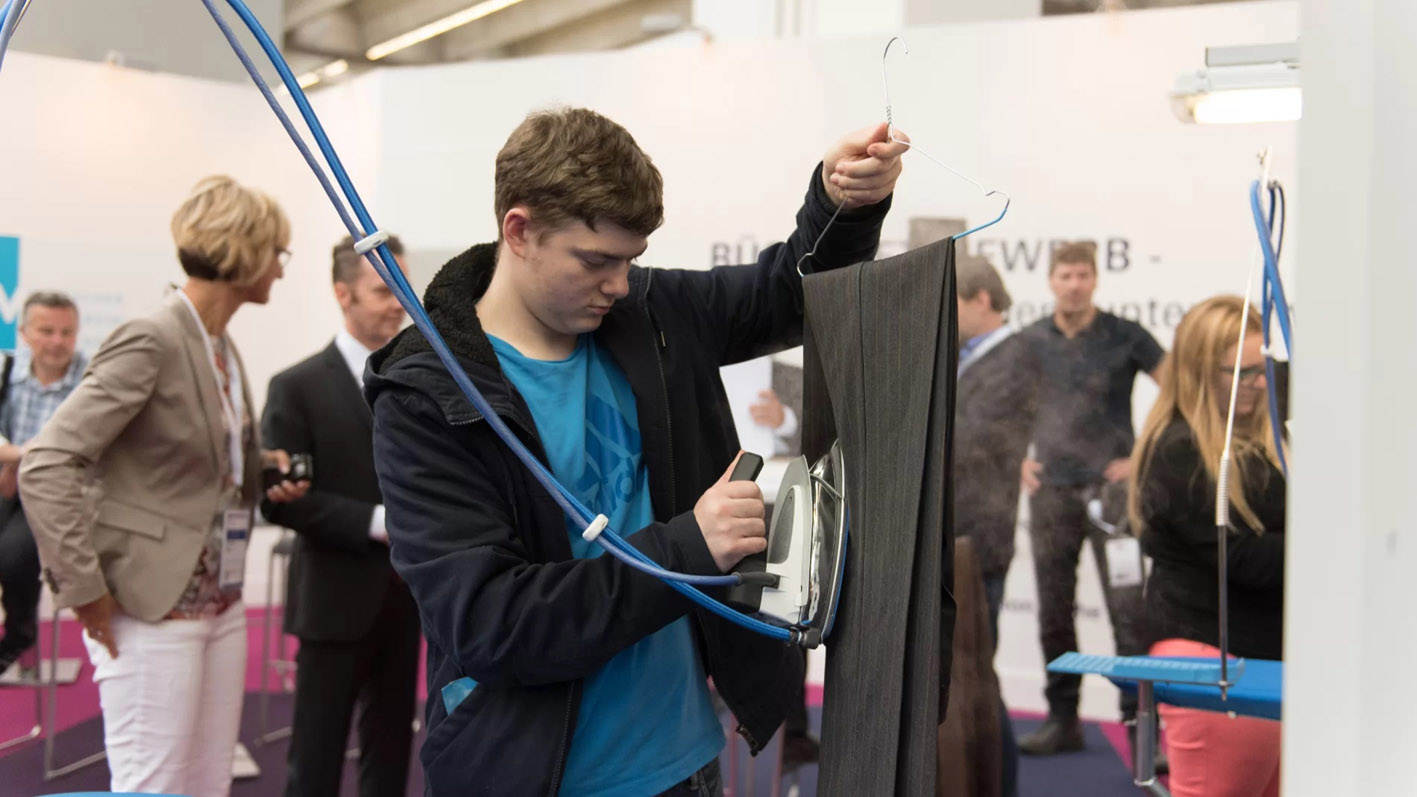
Automation focus at Texcare International 2024
Circularity requirements defined in Brussels have long been standard practice.

29th August 2024
Innovation in Textiles
|
Frankfurt, Germany
The professional rental service for linen and workwear is a textbook example of a circular, sustainable business model of reduce, reuse and repair.
It uses hard-wearing textiles instead of lower-quality or disposable products, optimises their useful life through professional care and repairs and develops solutions to re-purpose them after they have reached the end of their useful life.
Green Deal
With its Green Deal, the European Commission is setting the conditions for the transformation of the garment-manufacturing industry from a business model of short-lived consumption to a more sustainable, circular system.
The aim is that by 2030, fast fashion will increasingly be replaced by textile products that have a longer life cycle. To achieve this, textiles must be more durable, reusable, repairable, fibre-to-fibre recyclable and have a greater proportion of recycled fibres.
For the textile service sector, the circularity requirements defined in Brussels have long been standard practice – hiring out professional workwear and protective clothing, as well as hotel and hospital linen, conforms precisely to these demands.
Rental services
The textile rental service offers a variety of systems tailored to the needs of different groups of customers.
Workwear and protective clothing is stocked by textile service laundries in a wide range of sizes, so that each customer’s employees can be supplied with a suitable outfit. They are labelled and made available to the individual wearer. If the employee leaves a job, the garments are taken back and – provided they are in good condition – reused as replacement clothing.
In the case of workwear in the healthcare sector, as well as bed linen, table linen and towelling, a pool solution is more common. A laundry pool comprises similar textiles that are supplied without being assigned to a specific customer or wearer, which significantly reduces the quantity of textiles used.

Local textile cleaning is another major area of commercial textile care that also helps extend the life of textiles with a wide range of goods being professionally processed on behalf of private and commercial customers. High-quality outerwear and underwear, premium home textiles, delicate down jackets or heavily soiled workwear are all restored to a clean, fresh and usable condition. If stains prove particularly stubborn even after cleaning, a specialist company can re-colour the goods, ensuring they can be reused.
Recycling
The sector is also working hard on the recycling of old textiles, as called for by the EU textile strategy. Several workwear manufacturers have developed their own returns models, enabling customers to hand back their old workwear when buying new items. The old workwear is then reused or recycled by partner organisations. Large companies, including Deutsche Telekom and Ikea, have also introduced a centralised returns and recycling system for discarded workwear.
Ikea has even created its own home textiles line crafted from old workwear.
The easiest way to implement a system of this kind, however, is to use a rental service, as the goods are always returned to the specialist company and sorted there. The used laundry is collected in one place after washing, where it forms a large volume of similar discarded textiles, which greatly simplifies both collection logistics and the recycling process.
These favourable conditions have already led to the establishment of an initial initiative in which several textile service companies pool their waste hotel linen and channel it into industrial cotton-to-pulp recycling.
Solutions for rejected textiles are more varied than simply recycling them. Sweden’s Fristads, for example, offers a repair service for its workwear. The British department store chain John Lewis is now going one step further and in a field trial enabling customers to hand in their garments at selected stores for cleaning and repair. The garments are processed by Johnsons, a laundry and dry-cleaning chain belonging to the Timpson Group.
There are also recycling solutions for large contract textiles, which are converted into bags or cosmetic accessories or, after a colour-changing process, into small batches of aprons. However, the effect of such concepts on reducing textile waste is as small as their diversity. Only the established second-hand model is able to return larger quantities to the economic cycle.
Durability requirements
While the textile-care industry is unanimous in its support for the requirements of the EU textile strategy and is contributing solutions, it disagrees on increasing the proportion of recycled fibres in its products. Although there are already numerous workwear collections and hotel linen ranges that meet the requirements from Brussels, some of the products do not meet the durability requirements because the fibre quality deteriorates with each recycling stage.
As a result, many contract textile manufacturers still rely exclusively on virgin, brand-new fibre materials to ensure durability in industrial laundering.
The very latest developments from this industry will be presented at Messe Frankfurt’s Texcare International exhibition in Frankfurt from 9-11 November 2024.

Business intelligence for the fibre, textiles and apparel industries: technologies, innovations, markets, investments, trade policy, sourcing, strategy...
Find out more